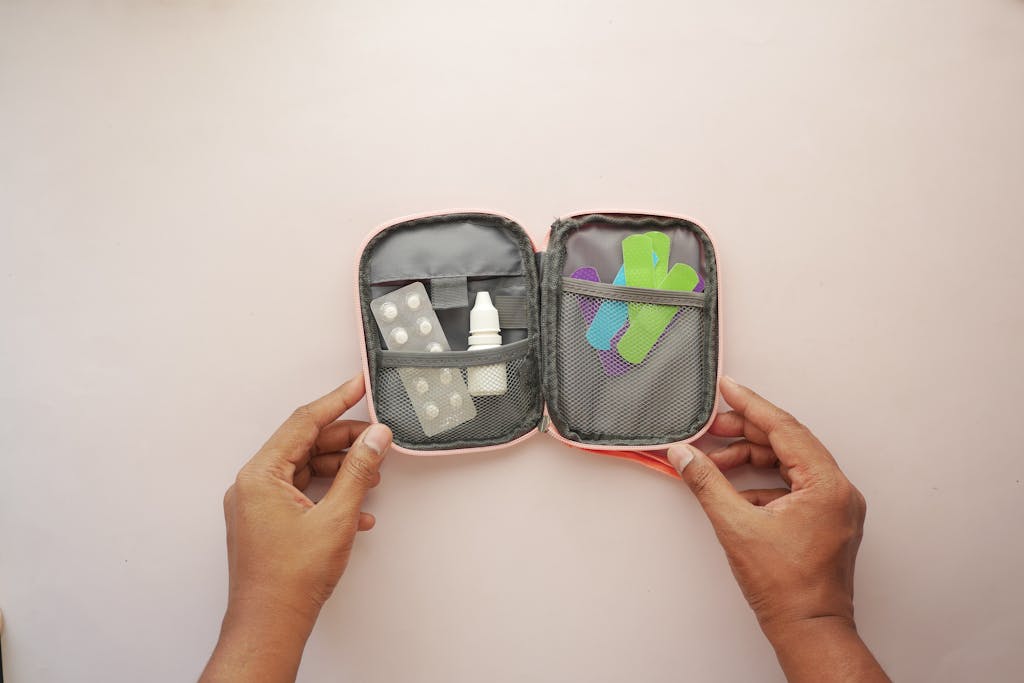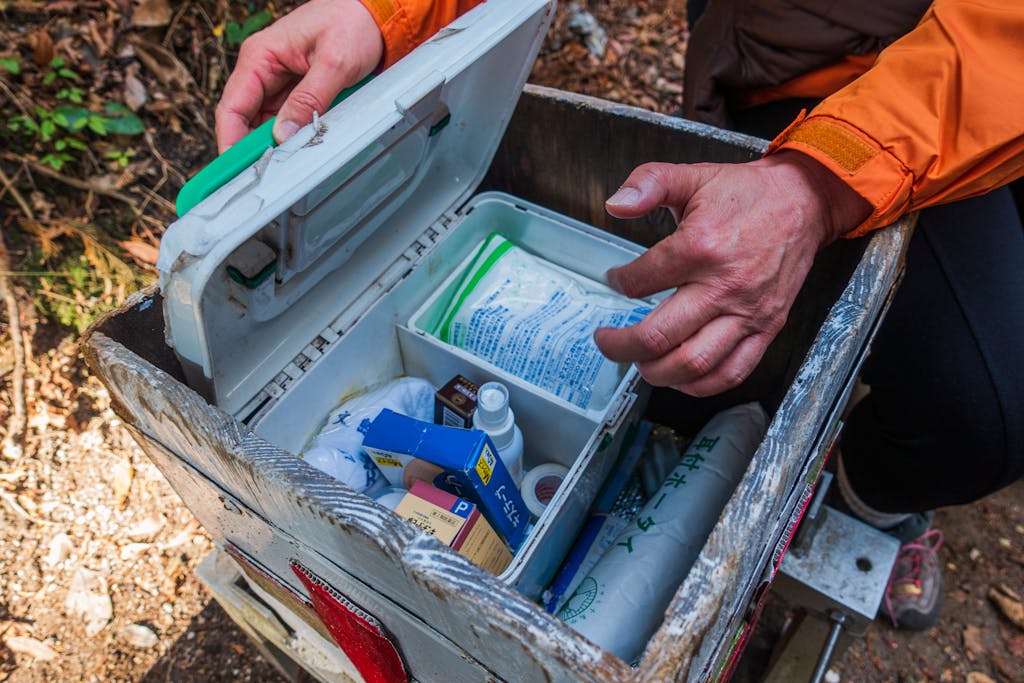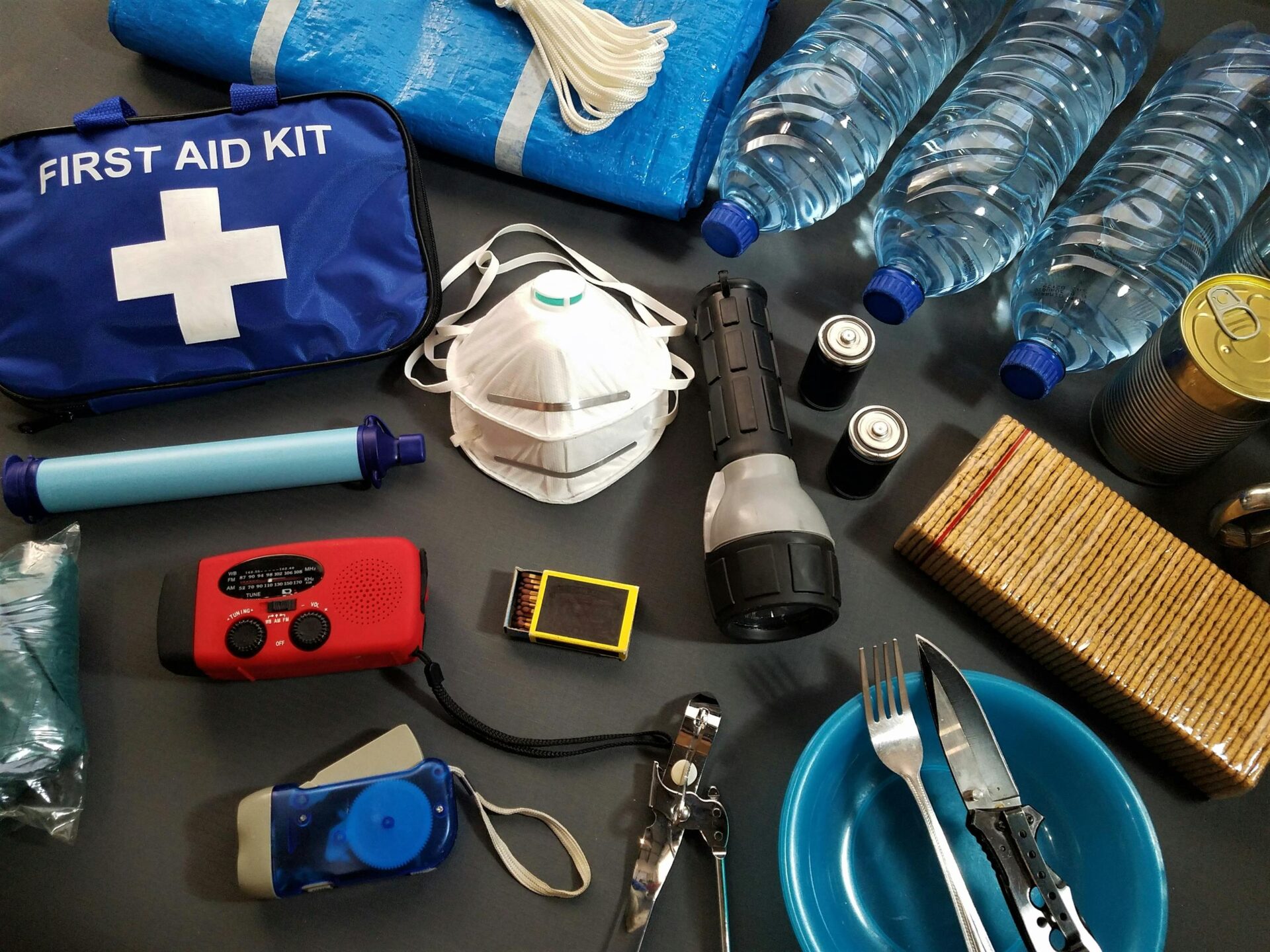Family trips are a fantastic way to create lasting memories, but they can also come with unexpected bumps and scrapes. Having a well-prepared first aid kit is crucial to handling minor injuries and health issues that may arise. This article will cover the essential items for a basic first aid kit and provide tips on how to stay prepared for any family adventure. We’ll also include links to helpful resources and examples to illustrate the importance of a comprehensive first aid kit.
Why a First Aid Kit is Essential

A first aid kit is a must-have for any trip, whether you’re going on a weekend getaway or a month-long adventure. It ensures that you’re prepared to handle minor injuries and illnesses quickly, which can prevent more serious complications. A well-stocked first aid kit provides peace of mind, allowing you to focus on enjoying your time with your family.
Basic First Aid Kit Essentials
1. Bandages and Dressings
- Adhesive Bandages: Various sizes for minor cuts and scrapes.
- Sterile Gauze Pads: For larger wounds.
- Adhesive Tape: To secure gauze pads or dressings.
- Elastic Bandages: For sprains and strains.
2. Antiseptics and Ointments
- Antiseptic Wipes: For cleaning wounds.
- Hydrogen Peroxide: For disinfecting cuts and scrapes.
- Antibiotic Ointment: To prevent infection.
- Hydrocortisone Cream: For insect bites and rashes.
3. Medications
- Pain Relievers: Such as acetaminophen or ibuprofen.
- Antihistamines: For allergic reactions.
- Motion Sickness Tablets: To prevent nausea.
- Anti-diarrheal Medication: For stomach issues.
4. Tools and Supplies
- Tweezers: For removing splinters or ticks.
- Scissors: For cutting bandages or tape.
- Thermometer: To check for fever.
- Disposable Gloves: For hygiene when treating wounds.
- Safety Pins: To secure bandages.
5. Additional Essentials
- Instant Cold Packs: For reducing swelling from injuries.
- Burn Cream: For minor burns.
- Eyewash Solution: For rinsing out eyes.
- Emergency Blanket: To keep warm in case of shock.
How to Customize Your First Aid Kit
Depending on your destination and the specific needs of your family, you might need to customize your first aid kit. Here are a few considerations:
- Traveling with Children: Include pediatric versions of medications and child-friendly bandages.
- Chronic Conditions: Pack extra supplies for any family member with a chronic condition, such as asthma inhalers or diabetes supplies.
- Outdoor Adventures: Consider adding items like sunscreen, insect repellent, and moleskin for blisters.

Final Tips for Staying Prepared
- Regularly Check Your Kit: Ensure all items are in good condition and not expired.
- Tailor to Your Trip: Adjust the contents based on your destination and planned activities.
- Educate Your Family: Make sure everyone knows where the first aid kit is and how to use its contents.
By ensuring you have a well-stocked first aid kit, you can handle minor emergencies efficiently, giving you peace of mind to enjoy your family trip fully.
Related Sites for Further Reading
- Red Cross First Aid Kit Checklist
- Mayo Clinic First Aid Kit Essentials
- CDC Travelers’ Health
- REI First Aid Kit Checklist
- WebMD First Aid Kit Basics
- Healthline First Aid Kit Essentials


[…] 3. First Aid Supplies […]